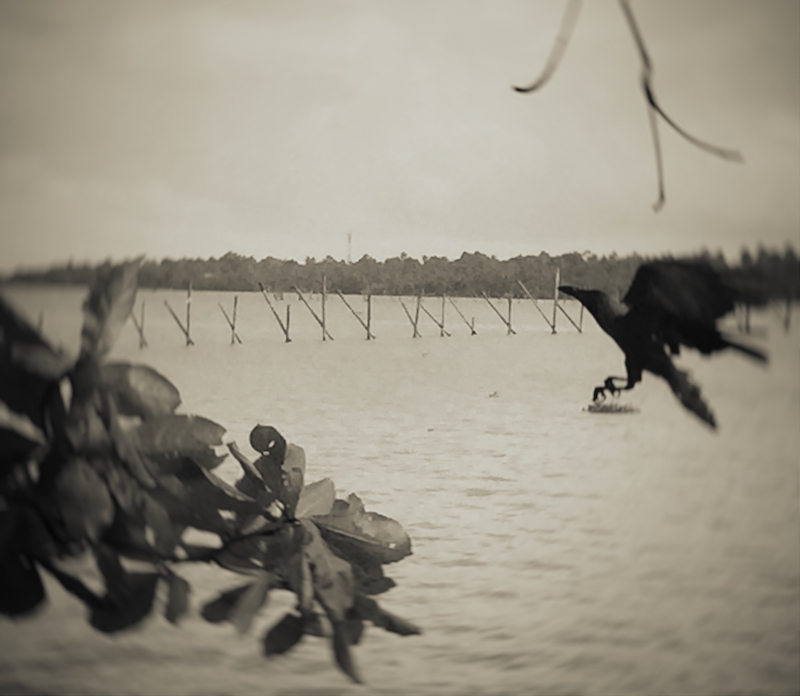
Three Poems
by Peter Markus
The Song and the River
The days pile up, one on top
of the other, until we are standing
on top of a mountain looking
out at a sky with no sun or moon.
Not even the stars ask who we are.
Even the sound of our own voice
inside our head belongs to a stranger.
When we try to remember or say
our name we are left with a silence.
When you reach out for the wing
of a passing blackbird it turns away.
Its black eye says to you not yet.
Below there is a crack in the earth
that turns out to be a river. Too deep
to walk across and with a current
too swift to swim, you wait to see
if maybe a boat might take you.
When no boat comes you walk back
home to the bed by the window
with a view of the river. You climb
back into the quiet. Across the river
the tallest point us a smokestack
that no longer belches gray smoke.
Beneath your bed pillow is a stone
you placed in your pocket years ago
during one of your many walks
along the river. Stones are prayers,
are songs only the birds can hear
when they take us up on their backs
to carry us home. Home, my father
likes to say. I want to go home.
You are home, I say. Maybe he sees
the mountain and the blackbird.
Maybe the stranger’s voice is his own,
in the silence, singing him home.
Sheepshead
The sheepshead floating on the surface
of the river was dead, its one eye staring up
at the sun. I rowed my little boat by it
just to make sure and to take a second look.
It was dead, its one eye staring at the sun.
Some things don’t have to be looked at
more than once. When I was a boy I liked
to take a walking stick to all the things dead
on the side of the road. When I say things
what I mean to say is dogs, cats, deer, raccoons,
not to mention the crows and other birds
that like to eat other dead things on the side
of the road. When my father died I stood
off to the side of his bed to watch my mother
kiss his face and run her fingers through his hair.
Two hours later a woman with a stethoscope
listened to hear a heartbeat. There was none.
He was dead. It was official. This we already knew.
We dressed him one last time: a clean blue shirt.
A pair of underpants he hadn’t worn in three years.
Gray sweats. I shaved his face. We washed his body
until it was as clean as a dead body needs to be.
The dead sheepshead that I rowed past on the river
had lost any hint of silver it once had. My father turned
to wood for the fire that would turn his bones to dust.
I carry him with me everywhere I go, everywhere I look.
I see him in the sky and in the river. The sheepshead
floating on its side, some part of it still impossibly alive.
On the Other Side of the River
What happens on the other side of the river
stays on the other side of the river. Just as when
the dead are taken away they do not return
looking as they once did. There are birds
and fish both of which sometimes wash ashore
no longer able to fly or swim. The dead
in their most silent form, with no song other
than what words we might say of them.
I have no more songs other than this.
These hands that reach down into the mud
to hold them one last time, before I put them back
where I found them, and then walk away.
Making a humming sound only I can hear.
Peter Markus is the author of the novel Bob, or Man on Boat, as well as the collections of short fiction We Make Mud and The Fish and the Not Fish, all published by Dzanc Books. Other books include Good, Brother and The Singing Fish, both published by Calamari Press. When Our Fathers Return to Us as Birds, his debut book of poems, will be published in September by Wayne State University Press.
